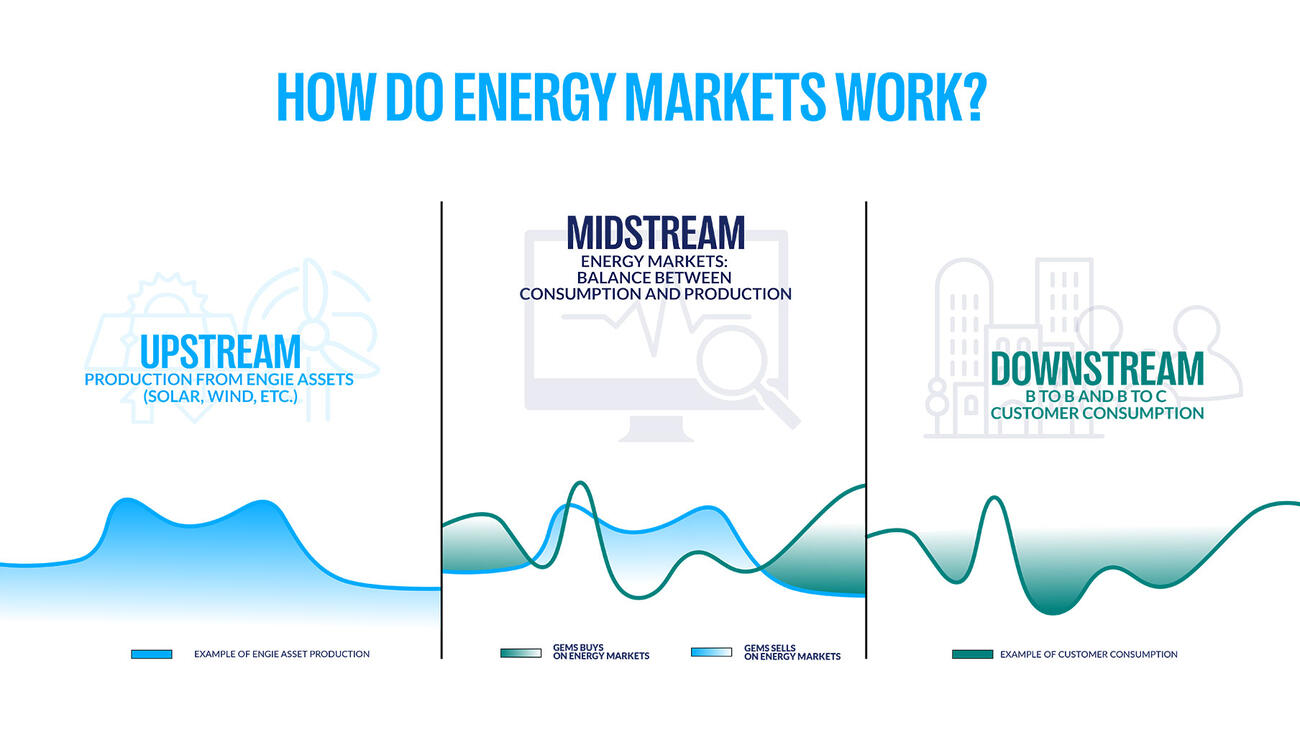
Whether you're an industry with steady production processes or an individual with fluctuating needs, effective energy management now plays a crucial role.
So, how can we ensure that supply and demand are efficiently balanced and that costs remain manageable?
Through its integrated model, ENGIE, via its Global Energy Management and Sales (GEMS) entity, plays a central role in connecting energy production to end consumers.
For individuals, energy is sourced from the markets through the supplier.
Key figures
|
Energy management: operating at the heart of supply and demand
Energy management requires strong coordination between energy production and consumption. In practice, it aims to ensure the efficient and economical distribution of resources.


